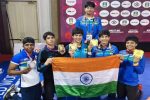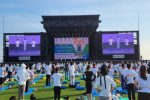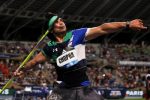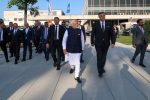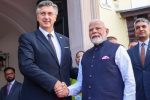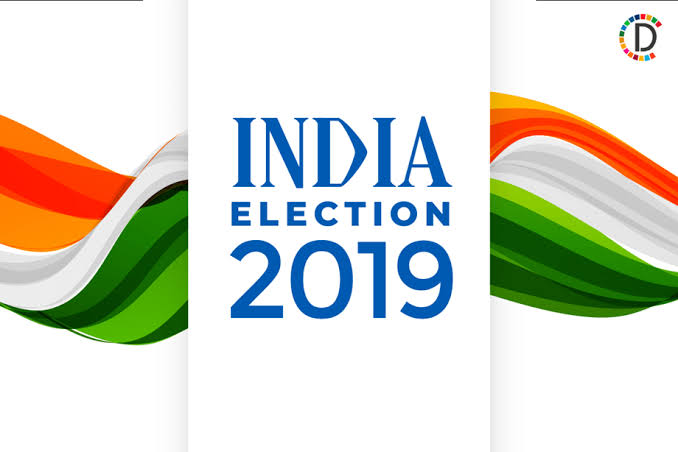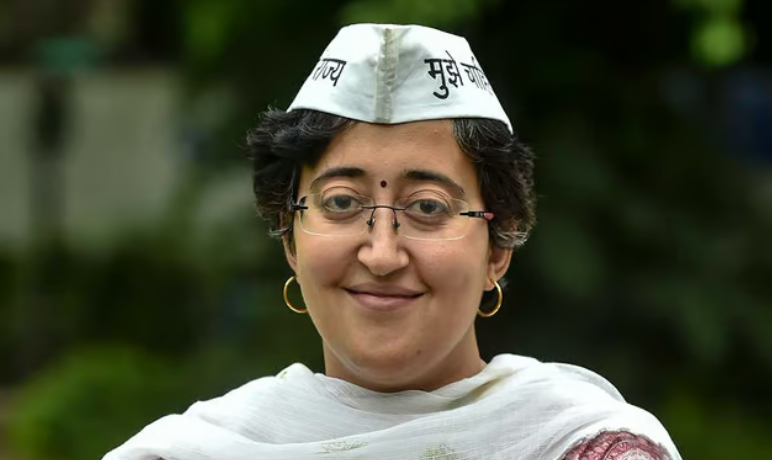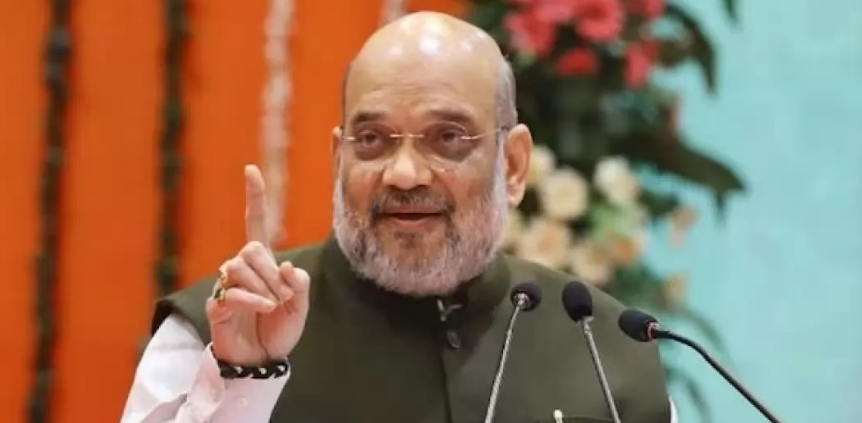Muslim representation in the 17th Lok Sabha could increase marginally from the previous election with as many as 26 candidates having won or leading, prominent being NC’s Farooq Abdullah and AIMIM’s Assauddin Owaisi.
Owaisi won the Lok Sabha election from Hyderabad by 2,82,186 votes for the fourth time and will became the longest serving Muslim candidate. His party candidate Imtiaz Jaleel Syed, a former journalist, was leading by nearly 4,500 votes from Aurangabad constituency in Maharashtra.
In Uttar Pradesh, four Muslim candidates won, while two other were leading, according to latest trends.
In West Bengal, three Muslim candidates won and three others were leading.
Two Muslim candidates from Kerala have won the election and one candidate was leading. In Jammu and Kashmi, two Muslim candidates from the National Conference won the election and another was leading.
Two Muslim candidates emerged as winners in Bihar, while one candidate each in Punjab and Lakshadweep emerged victorious. Two Muslim candidates in Assam and one in Maharashtra were leading.
The outgoing Lok Sabha had 23 Muslim MPs, the most being from Congress and TMC. The highest number of Muslim MPs were in 1980 when as many as 49 MPs from the community which constitute nearly fifth of Indian population present in the Lok Sabha.
The previous 14th and 15th Lok Sabha had 30 and 34 Muslim MPs each when Congress-led UPA was in power. In 1984 when Rajiv Gandhi swept to power following the assassination of his mother and then prime minister Indira Gandhi as many as 42 Muslim MPs were there.
The lowest number of Muslim MPs were in 1952 when just 11 were present in the Lok Sabha.
Mamata Banerjee’s Trinamool Congress is likely to send most number of Muslim candidates as three members (Mushidabad, Jaghipur and Uluberia constituencies) have won and two others were leading in Basirhat and Arambagh seats.
Congress, Samajwadi Party (SP), Bahujan Samajwadi Party (BSP) and National Conference (NC) are expected to sent three Muslim candidates each.
While BJP did not field any Muslim candidate in this election, its ally LJP fielded Choudhary Mehbhoob Ali Kaisa from Khagaria in Bihar who won by a margin of over 2.48 lakh votes.
Abdhullah returned to the Lok Sabha from Srinagar parliamentary constituency, defeating BJP’s candidate by 70,050 votes.
His party National Conference won the Anantnag seat by 6,676 votes and was leading in Baramulla by over 30,000 votes.
SP leader Azam Khan, who during the campaign created controversy with his coloured remarks against BJP rival Jayaprada, was leading in the Rampur seat in Uttar Pradesh by nearly 1.10 lakh votes. SP candidate S T Hasan won from Moradabad, while Shafiqur Rehman was leading from Sambhal.
SP’s ally BSP candidates won from Amroha, Ghazipur and Saharanpur. Local don Mukhtar Ansari’s brother Afzal Ansari defeated Telecom Minister Manoj Sinha from Ghazipur in eastern Uttar Pradesh by a margin of over 1,19,392 votes.
In Kerala, Indian Union Muslim League — an ally of Congress — won two seats — P K Kunhalikutty (Mallapuram) and E T Mohammad Basheer (Ponnani seat).
While the Left was decimated across the country, CPI(M)’s candidate A M Ariff was leading in the Alappuzha seat in Kerala.
Congress’s good performance in Punjab helped its candidate Mohammad Sadique won the Faridkote seat by 83,256 votes. Its candidate in Bihar Mohammad Jawed won the Kishanganj seat by 34,466 votes, while Abu Hasem Khan Choudhary was leading by over 10,000 votes from Maldah Dakshin in West Bengal.
Congress’s candidate Abdul Khareque was leading by over 1.25 lakh votes from Barpeta seat in Assam.
Perfume baron Badraddin Ajmal (AIUDF) was leading by over 2 lakh votes from his traditional seat of Dubri in Assam.













